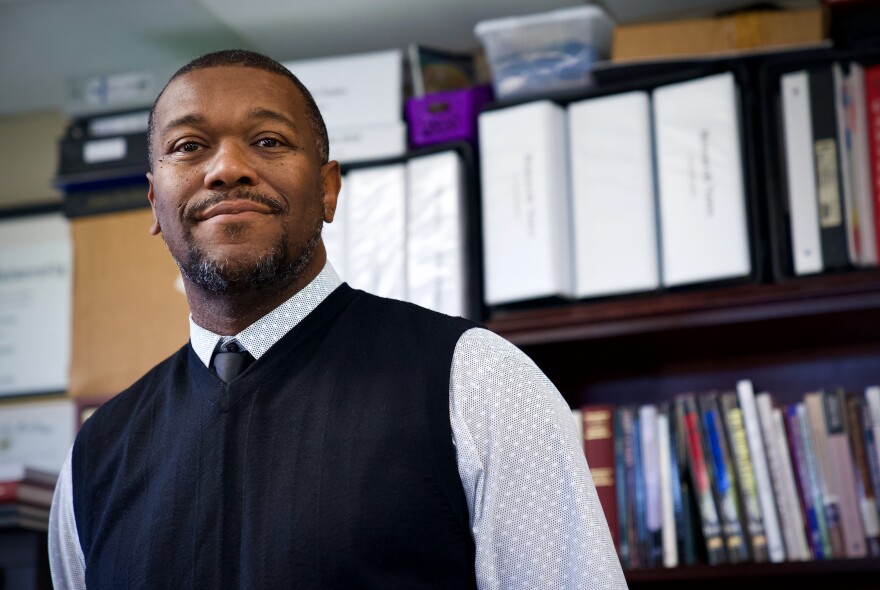Systemic racism and healing from the trauma of oppression are the focus of the 25th annual Festival of Faiths, which kicks off in Louisville Thursday and runs through Saturday.
The Center for Interfaith Relations organizes the event, which this year is titled “Sacred Change: Essential Conversations on Faith and Race.” It’s framed as a response to the police killing of Breonna Taylor, a 26-year-old Black emergency room technician, and the protests in the city following her death.
“I think the Breonna Taylor situation was a microcosm of larger issues,” said Lewis Brogdon, who directs the Institute of Black Church Studies at the Baptist Seminary of Kentucky and will present during the festival.
“We're really in a period of reckoning,” he continued. “So one of the ways you produce change is challenging the way people think, to help them to understand the history. And that's what we're trying to do.”
Brogdon said the festival will dedicate the next several years to addressing systemic racism.
“We know you can't have a singular conversation and change anything, but we want to educate, educate, educate, agitate, advocate, so that we end up with structural change,” he said.
The lineup for the 2021 festival features theologians, speakers and artists discussing topics such as the racial reckoning in the United States and Louisville, intersectionality and a session called “Black Trauma, Pain and Nihilism.”
Below are excerpts from Brogdon’s conversation with WFPL News, edited for length and clarity.
On the interplay or relationship between religion and race:
“Racism is really the product of religion, especially Christianity, in America. It has played an integral role, whether it's been using passages out of scripture to justify why Blacks are enslaved, cursed, etc. There have been churches who have turned a blind eye to the enslavement, to lynching — even today, mass incarceration, some of the issues we have with policing. So you have churches who are advocating, but you have a lot of churches and religious institutions and entities that are trained to look the other way. So it's our responsibility to sort of own our own history. But we also don't want to keep repeating those things.”
On acknowledging the ways religion and faith have divided people, while looking for ways spirituality can heal:
“What we're doing is we are creating space... for truth-telling, space to be honest about the pain, the trauma, the nihilism... We're not going to shy away from those hard conversations. But the faith tradition has also been a great asset, whether it's resistance, whether it's healing, whether it's justice claims, which helps us move towards some semblance of reconciliation. We're going to do both of those things.”
On how spirituality can be a tool for healing:
“For one, it can actually be a tool to correct when religion goes wrong... So the irony of being a part of the Black Christian tradition is that some people in the Black community believe you actually betrayed Black people; you have adopted the religion of your oppressors. Our response is, ‘No, we did not appropriate white Christianity, that actually the reason there's a Black church today is because of a thing called slave religion.’ Enslaved Africans encountered God in the bushes on their own terms, and found God to be a resource of hope, who instilled a sense of somebodiness in them, that they were more than just slaves, that they were God's children, and that they will be able to work towards something better… Religion is more than just praying and singing songs, and silent meditation and thinking about God. It's really thinking about how God wants us to organize the world... So if we care about God, then we are also going to care about our neighbors.”
The Festival of Faiths runs in Louisville Nov. 18 - 20, 2021. You can view the full schedule here. Some of the programming will be streamed online.

